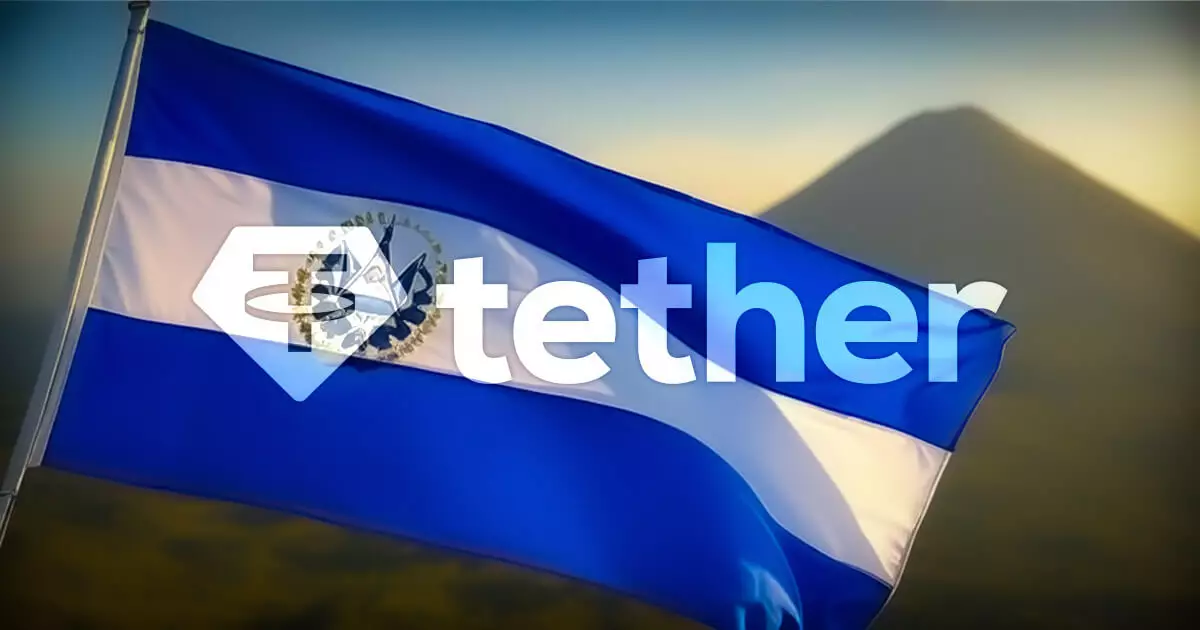Tether, one of the most prominent stablecoin issuers in the cryptocurrency market, has announced its intention to relocate its headquarters to El Salvador. This decision follows the acquisition of a Digital Asset Service Provider (DASP) license, which signifies the company’s commitment to operating within a regulated framework. This strategic move is not merely about relocation; it reflects a larger vision connecting the future of finance with emerging markets that embrace innovation.
El Salvador has become a noteworthy player on the global stage as the first country to adopt Bitcoin as legal tender. Under President Nayib Bukele’s guidance, El Salvador has positioned itself as a beacon for digital asset innovation, offering an environment that encourages blockchain developments. Tether’s executives recognize that the nation’s progressive approach to cryptocurrency and blockchain directly aligns with Tether’s mission to promote financial inclusion. This alignment reflects a growing realization that technological advancement can be a catalyst for economic empowerment, particularly in underserved regions.
Why Tether Chose El Salvador
The choice of El Salvador for Tether’s new headquarters seems to stem from more than just favorable regulatory conditions. The company notes that the country’s Bitcoin-centric economy presents unique opportunities for fostering financial technologies capable of serving populations typically neglected by traditional banking systems. Tether’s CEO Paolo Ardoino articulated that this strategic relocation is fundamentally about seeking an ecosystem that not only supports the traditional objectives of financial decentralization but also creates pathways to innovation through collaboration with local enterprises and governments.
Empowering Underserved Regions
By establishing a presence in El Salvador, Tether aims to enhance its capability to support regions that often remain on the periphery of the financial mainstream. The emphasis on financial inclusion is increasingly important, as many areas lack sufficient access to banking services. Tether’s initiative—rooted in the belief that financial freedom can be achieved through digital currencies—could potentially revolutionize how financial services are delivered in these communities. By leveraging blockchain technology, Tether hopes to provide avenues for equitable access to financial resources, enabling economic growth where it is most needed.
Ardoino’s admiration for President Bukele underscores the importance of leadership in the trajectory of technological progress. By advocating for Bitcoin and encouraging innovation, Bukele exemplifies how visionaries can drive systemic change in society. For Tether, partnering within this framework bodes well for its long-term goals. The relocation seems to unlock even greater potential, allowing Tether not only to expand its reach in the Central American market but to become a part of a larger narrative about the evolution of money and financial empowerment through technology.
Tether’s decision to move its headquarters to El Salvador comes at a significant moment in the evolution of digital currencies. This strategy reflects a broader recognition of the potential for cryptocurrencies to enact change at various levels—locally, nationally, and globally. As Tether aligns its operations with a nation that champions innovation and resilience, it serves as a reminder that the future of finance may well rest in the hands of those willing to embrace bold ideas and foster transformative collaborations.

